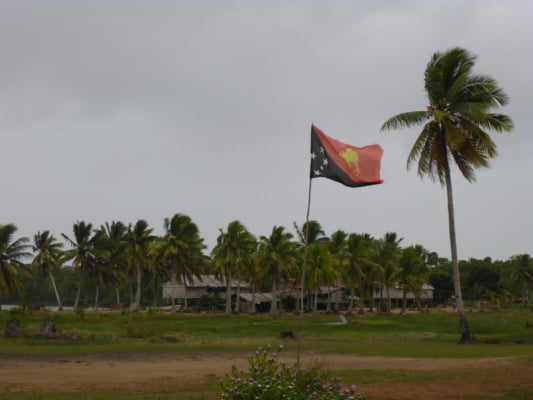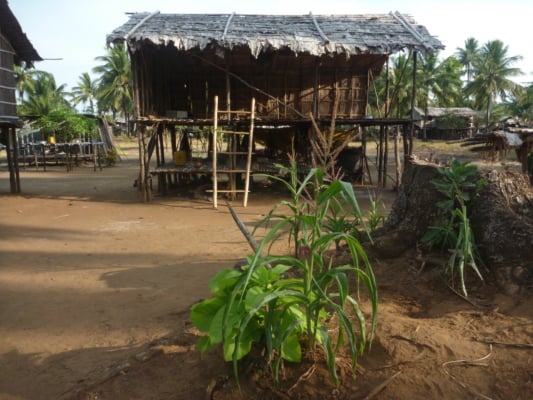This blog was originally published by CARE International
In the COVID-19 pandemic, some commentators have noted that governments with women leaders have responded more effectively. For the most effective response and recovery, women’s leadership must go far beyond the top role, to be supported at all levels, in order to bring essential perspectives and experience, prevent roll backs on equality and lay the path for a fairer future. However CARE’s research found women make up just 24% of national COVID response teams, and women’s rights and women led organisations are not being supported to lead the response at the local level.
The COVID-19 pandemic is affecting all countries around the world, causing both an unprecedented public health, economic and political crisis. Since many countries are over a month now into their initial response, commentators are comparing results and noting that countries which seem to have been more successful at preventing a widespread outbreak have women leaders in charge. Women heads of state in Taiwan, New Zealand, South Korea, Germany and Finland are among those being praised for decisive, early action that followed scientific advice.
A gender analysis of leadership offers some explanation as to the links and why women’s leadership is crucial in a crisis. Firstly, the fact that women face higher barriers to leadership in the first place, requiring them to be more competent than men in the same position has been noted.
Individuals such as Jacinda Arden, Prime Minister of New Zealand, have also been praised for an empathetic and inclusive leadership style, which while not solely female traits, are in contrast to aggressive, individualistic approaches that are more traditionally thought of as male. As the COVID-19 crisis is revealing at the starkest levels how interconnected our communities are, and requiring solidarity based responses to protect each other and our collective services, leadership based on these values is resonating.
In CARE’s experience responding to humanitarian emergencies around the world, women’s leadership in crises goes far beyond heads of state. In fact, women leaders, including women’s rights organisations, are often on the frontlines of responding to crisis. They are playing a leading role in affected communities, helping everyone in those communities – women, men, girls and boys – survive, cope with and adapt to the crisis. And evidence shows their leadership is essential for more inclusive and effective responses.
There are three reasons why in this crisis in particular, women’s leadership is more important than ever:
1) Women bring different perspectives, essential to understand and respond to the crisis
The crisis is deepening existing inequalities between women and men. Women face unequal loads of unpaid care and domestic work, increased rates of domestic violence, and problems accessing sexual and reproductive healthcare. Having more diverse leadership and people in decision-making power helps to ensure that policies are designed with these inequalities in mind – and can work to address them rather than make them worse. When women and other marginalised groups aren’t at the decision-making table, interventions can fail to be effective. The Ebola response, for example, has been criticised for failing to take account for how women’s caring responsibilities interacted with prevention measures.
2) Preventing rollbacks on gender equality and human rights
Moments of crisis can often be when the status quo is disrupted and social norms are broken. Women leaders can make progress in these moments – for example research has shown in post-conflict societies, women can have higher political representation. However, there are also major risks that the COVID-19 crisis gives rise to a rollback on gender equality. More women in Sierra Leone are reported to have died from obstetric complications in the 2013 to 2016 Ebola outbreak than of the disease itself, because resources were diverted away from sexual and reproductive healthcare. The impacts of the economic crisis will also disproportionately affect women, and in some cases governments are using the crisis to install authoritarian measures that could have long lasting implications for women’s rights. Supporting and standing in solidarity with progressive women leaders is therefore crucial at the time of crisis.
3) Laying the path for a more equitable, fairer world
Whilst individual women do not have uniform priorities or leadership styles, the values and practices that are inherent to feminist leadership – focusing on inclusivity, addressing intersecting inequalities and valuing long term well-being over short term economic gain – are crucial for societies to recover from COVID in a sustainable and resilient way. As discussions begin about how to recover and what type of societies and economies we want to build for the future, the COVID-19 crisis shows the imperative to value care work, prevent future climate crisis and ensure fairer, more equal economies. Diverse, women and feminist leaders will be leading the way towards these paths. The Hawaiʻi State Commission on the Status of Women’s Feminist Economic Recovery Plan for COVID-19 is an early example. The alternatives – structural adjustment programmes and austerity measures – will only deepen inequalities and make future crises more likely.
Despite the evidence that women’s leadership is crucial in a crisis, there is still a long way to go to recognise and support women leaders, and for them to have equal and meaningful decision-making at all levels of crisis response. In humanitarian crises, women and girls are often excluded from community-level decision-making processes and governance structures that shape the response strategies. As late as 2018, only 56% of the monitored crisis contexts directly consulted with local women’s organisations in the humanitarian planning process.
In the short term, the humanitarian response to COVID-19 should include measures to fund and consult with women-led organisations and women leaders at all levels. In the longer term, governments and civil society should ensure that the values of feminist leadership are used as a basis to inform the ongoing recovery efforts and build more resilience for the future.
This blog was originally published by CARE International










